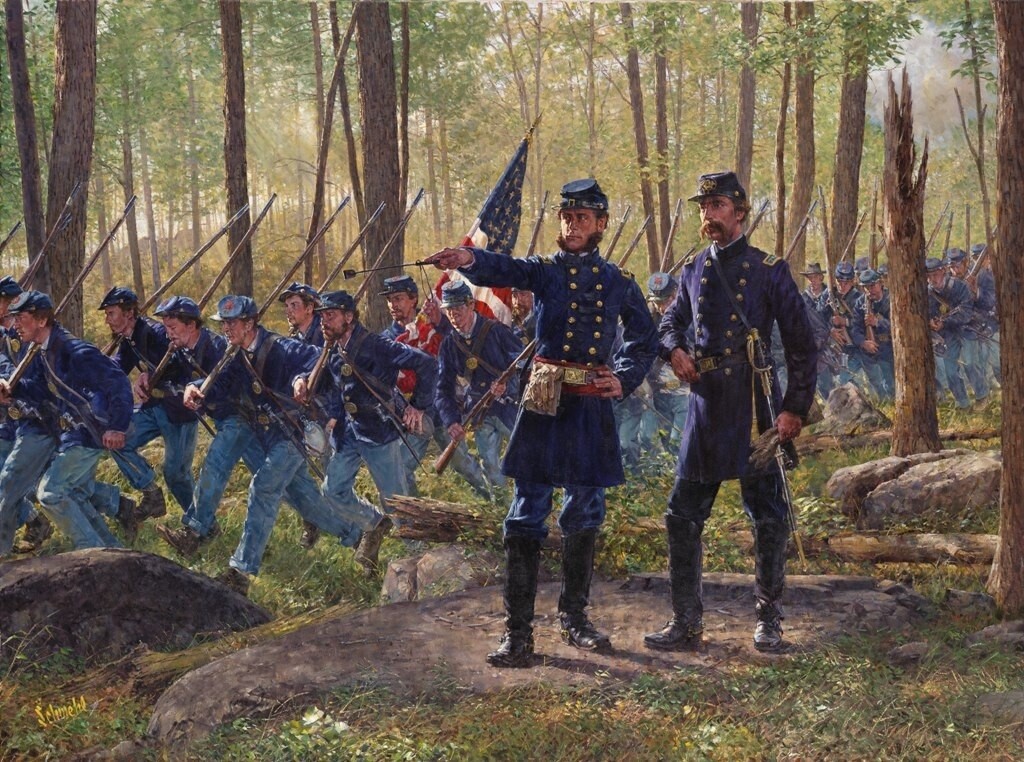Foundation Members receive a 20% discount. Enter the discount code at checkout.
Hold at All Hazards-Unframed Large Print
$77.50
On Sale
Was $155.00 Save 50%
In stock
Product Details
Available in large (28"x23") as an unframed version. Commissioned by the Distance Class of 2013. Signed and numbered with a U.S. Army War College seal. By Bradley Schmehl.
The name "Gettysburg" echoes down through the generations as one of the decisive battles in the "War Between the States", and one of the great battles of military history. On July 1, 1863, the Confederate Army of Northern Virginia had swept the Union Army of the Potomac from positions northwest of Gettysburg back through the town itself to a series of hills and ridge lines beyond.
Arriving at the cleared western crest of Little Round Top late on the afternoon of July 2, 1863, Brigadier General Gouverner K. Warren, Chief Engineer of the Army of the Potomac, immediately understood the great danger to the unsecured Union left flank, and sent couriers to bring any and all Union reinforcements to hold Little Round Top. One of these couriers found Colonel Strong Vincent, commander of the 3rd Brigade, 1st Divistion, 5th Corps. Without waiting to clear his decision through the chain of command, Vincent boldly declared, "I will do so and take the responsibility." Vincent thereupon led his Brigade to the western crest of Little Round Top. he positioned the 20th Maine Regiment at the terminus of the Union left flank with orders, in what would be his last words to Colonel Joshua Chamberlain, the commander of the 20th Maine, "hold at all hazards." Chamberlain and his soldiers would endure lines of gray-clad Confederate infantry assaulting the regiment's position on Little Round Top, and three times he and his men would heroically defend their position ultimately defeating the Confederates with a daring and courageous bayonet charge to clear their front and secure the Union left flank.
"Hold at All Hazards" is a testament to the leadership of Vincent and Chamberlain. Within a few minutes of this scene, Vincent would receive a mortal bullet wound. After the battle, Major General George C. Meade, commander of the Army of the Potomac, recommended Vincent for promotion to Brigadier General. Unfortunately, Vincent likely never knew of this honor, lying on his deathbed until passing on July 7, 1863. For his actions, Chamberlain would receive the Medal of Honor. He served to the end of the war, rising to the rank of Major General.
Save this product for later
Hold at All Hazards-Unframed Large Print
Display prices in:USD

